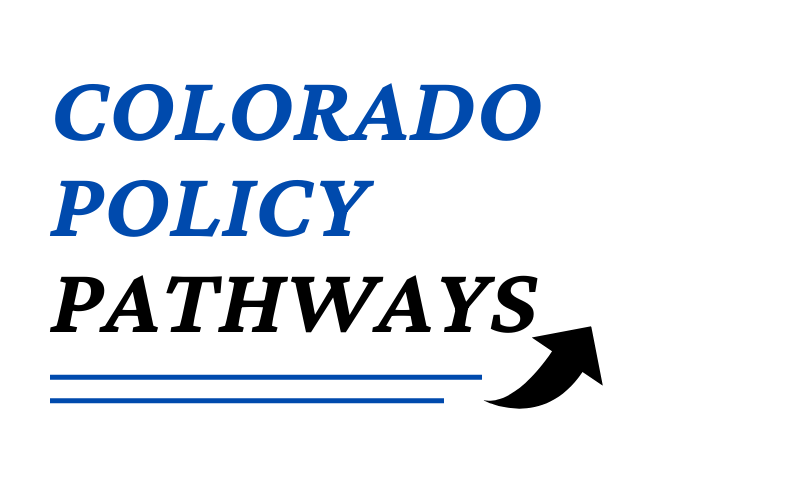Colorado sits on the edge of passing a mandate for employers to provide paid sick leave to employees. Senate Bill 205, “Sick Leave for Employees,” passed June 15th in both the Colorado Senate and House, but awaits the final step, Governor Polis’s signature. The bill would create the “Healthy Families and Workplaces Act.”
It seems straightforward and simple. Yet the law has far-reaching effects, and complexity emerges in its terms and implementation.
Due to the session’s unusual circumstances and the nearly complete lack of consensus on the bill’s passage, some still hold out hope for the Governor’s veto. Previous indications by the Governor are that he has every intention of signing the bill into law.
Now in the second year with a strong Democratic majority, this session is destined to be remembered by many for majority leadership’s poor regard for due diligence of contentious bills. The abbreviated session rushed the process. Significant bills were introduced in the final weeks, surprising many, creating overload and confusion. A lack of access to the process frustrated those trying to engage. Taken together, these factors compromised efforts to explore and balance concerns. The unfortunate result is hasty, low-information lawmaking and some confusing and burdensome laws that many across the state must now implement. It couldn’t come at a worse time.
Some lawmakers, determined to pass a paid sick leave law, dismissed the current economic conditions and the bill’s potential consequences.
Advocates are heavily promoting paid sick leave nationwide, part of a larger campaign of “pro-family” policies. The dominant narrative used to garner and document support for the sick leave measure this session re-framed the justification for a heavy government role to take advantage of the current public health crisis. It displaced and obscured concerns for trade offs, costs, and unintended consequences.
Pressure from the business community did resolve some of the most harmful terms and provisions. It narrowed litigation traps and clarified some of the legal language to make compliance less of a burden.
There was a last-minute concession for employers with fewer than 15 employees. A two-year reprieve gives them until January 2022 to comply. This will soften the blow to the many small businesses for whom another mandate is just terrible news.
Summaries of those amendments can be read here and the final bill text, here.
Is a mandate the right option?
Lost in the rushed process is the main feature of the bill. It is an unfunded employer mandate. Business mandates are fast becoming one of progressive policy makers’ favorite tools. To many, these mandates are flawed and outdated policy models that hinder innovation and suppress job creation and wage growth. And they almost always have unequal impacts across business industries and sizes.
Recently proposed mandates are entering new territory that dictates the terms of employee benefits. These laws are most often crafted unilaterally by advocates with little understanding of the intricacies and dilemmas that underlie decisions that businesses have to make. Navigating compensation and benefits is a painstaking process. Decisions must be made in the context of that business’s operations and changing environment. What we witness from afar are the results of decades of change as businesses try to discover a delicate but sustainable balance.
Advocates’ confidence that government can override these concerns or mimic these features with static universal defaults will result in risks radiating throughout the economy that will deliver surprises. Surprises that no one wants to see.
Colorado falls in line with the movement toward business mandates
Senator Stephen Fenberg, one of the bill’s prime sponsors, claimed that this bill was overdue. Yet only 13 states have passed this law, most within the last five years. And even fewer have the law in effect. This means we have little experience to rely on to gauge the policy’s impacts on businesses and the economy.
Notably, several of these states are widely recognized as overstepping regulations and teetering toward (or already) “business unfriendly.” The terms of Colorado’s SB205 are among the most generous of those of existing states. In what is a growing patchwork of complex laws, highly variable by state, are also distinct laws imposed by some major cities. Businesses that operate in multiple states no doubt dedicate significant resources to adaptation and compliance.
A sense of urgency favored passage
The proposal of SB205 by lawmakers May 26th was ostensibly a response to COVID19 and to address the fear and disruption that has riveted our attention for these last three months. This backdrop, bolstered by select stories shared by lawmakers on the floor, provided justification for a long-term, state-mandated right to sick leave.
Most of the Democratic lawmakers seemed to have little sympathy for businesses that may be unable to comply with terms that lie beneath the title and intent of the legislation. Troubling, is that it is unknown which businesses – and why – are currently not offering this particular benefit. That information would have informed the debate to consider the policy’s merits. The outcome of its hasty passage could be the unfortunate loss of businesses that may hold unique value – in certain conditions or circumstances or to select job seekers and communities.
A survey by an advocacy organization for social health policy, Healthier Colorado, allowed sponsors to promote a narrative that a significant proportion of workers lack paid sick leave.
An unsupported assumption, repeated by several lawmakers, implied small businesses do not offer paid sick leave. Those claims ignore that many do offer various paid leave options, including those with distinctly categorized paid sick leave or PTO for the purposes of sick leave.
The unique environment of many small businesses allows for a less formalized approach. Incidental absences and time allowances may not even be recorded. This avoids costly and clunky compliance but also frees employers and employees to discover flexible options that are mutually beneficial.
The businesses that tried to engage and share their perspective faced nearly insurmountable challenges
Majority Leadership introduced and directed the bill through an abbreviated process. There were two short committee hearings, one less than an hour, the other less than two.
Sparse attendance was due to several factors. Many avoided attending due to COVID19 concerns. Strict protocols limited access. An earlier agreement with lobbyists to avoid adding congestion to the premises meant they were trying to communicate remotely at the expense of testifying in person. And the lack of notice left little time to alert those who may have otherwise participated.
The irregular process and strong majorities delivered a passed bill
Reflecting their claim that this mandate was of urgent concern (primarily) to public health, the bill’s sponsors dodged both business committees. Leadership instead assigned the public hearings to Senate State Affairs and House Health and Human Services.
Listen to the June 3rd Senate hearing here. The audio recordings of the June 10th House hearing and the June 15th Conference Committee hearing are not yet posted as of this post’s publication.
Update: The June 10th hearing in House Health and Insurance is now archived here. And the June 15th Conference Committee hearing, here.
The General Assembly website accommodated the submission of written testimony of approximately 300 words. It required some persistence to find the option. Once accepted, there was a pop-up confirmation message. What left some unsettled was that there were no other confirmations to provide tracking. And there were no indications that submitted testimony would be posted or made available to the public.
Update: A PDF of submitted testimony to the June 10th hearing in House Health and Human Services is now available here or accessible from the bill page under “Committees, Attachment I”
The pipeline of engagement was further restricted because also strained were the lines of communication direct with lawmakers. This is not uncommon near the end of any session. But given the flurry of unexpected bills that many were scrambling to evaluate, it was the extraordinary lawmaker that was able to keep up with the barrage of email.
The bill passed both chambers in the final hours.
In the final hours of the session, a conference committee met to resolve conflicts between the amended bills passed by each the House and the Senate. That bill passed, destined for the Governor’s desk for signing.
With only one dissent, Democratic lawmakers must have been confident that dismissing any concerns from the business community was necessary under the circumstances and inconsequential. But others questioned their urgency. Existing COVID-related mandates already cover workers through December 31st leaving an option to introduce a bill in January of 2021.

June 15: Final Votes, Senate Bill 205, in each chamber to re-pass after amendments by the Conference Committee
A list of SB205’s prime sponsors, as well as the co-sponsors who signed on to the bill during its passage, are in the endnotes below.
Colorado should continue to resist the sick leave mandate policy model
We need to stretch our thinking. We should work together to more carefully address the stresses on certain segments of our workforce in ways that don’t risk the damaging consequences to both business diversity and labor markets of long-term universal mandates.
A passed bill signed into law would demonstrate a dismissal of the business community’s plea that this was a terrible time.
It is likely that the sick leave law will pass. And a perception that Democrats did not wisely manage the fragile 2020 session will remain long after adjournment.
The economic shutdown from COVID19 violently sorted and re-ordered business sustainability across different sectors. Many businesses continue to face mounting costs and disrupted revenues.
Nearly lost in the chaos of the brief session’s final weeks was the singular goal of restarting the economy and restoring jobs before those losses are irreversible.
End note:
Sponsors and Co-sponsors of SB205
Prime Sponsors:
Senator J. Bridges, Senator S. Fenberg
Rep. K Becker, Rep Y Caraveo.
Cosponsored by:
Senators Danielson, Fields, Foote, Ginal, Gonzales, Hansen, Lee, Moreno, Pettersen, Priola, Rodriguez, Story, Todd, Williams A., Winter, Zenzinger, Garcia;
Representatives Bird, Buckner, Buentello, Cutter, Duran, Esgar, Exum, Froelich, Garnett, Herod, Hooton, Jackson, Jaquez Lewis, Kennedy, Kipp, Kraft-Tharp, Lontine, McCluskie,
Melton, Michaelson Jenet, Mullica, Singer, Sirota, Snyder, Sullivan, Tipper, Titone, Valdez A., Valdez D., Weissman, Woodrow, Young, Arndt, Gonzales-Gutierrez, Roberts.
The list can also be found on the State Bill Page under the “Sponsors” TAB


 Is it Time for a Sick Leave Law in Colorado?
Is it Time for a Sick Leave Law in Colorado?